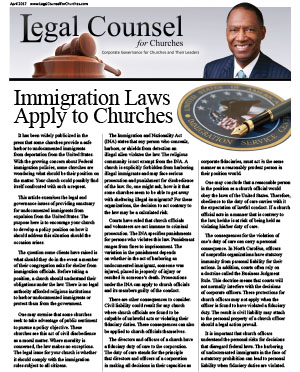Churches receive donations from their members, visitors and the public. For donations made with checks, churches face the risk the checks may be dishonored by the financial institutions on which the checks are drawn. When this happens, churches may have remedies available to them if they follow the law in North Carolina.
In North Carolina, if a person, firm or corporation gives a check to a church he/she is obligated for the funds represented by the check. In instances where the payment is refused by a financial institution because of insufficient funds, the person who presented the check is liable to the church. The liability includes the amount of the check and any services charges the church incurs from its bank’s charges.
The church has a right to seek collection of checks and fees if it follows the statutory process specified in North Carolina law. First, the church must make a written demand for payment. An initial written demand for the amount of the check, the service charges, and processing fees must be mailed by certified mail to the defendant at the defendant’s last known address. A subsequent demand letter may be sent to the defendant. The church is also entitled to demand three times its damages in the letter.
The subsequent demand letter should be mailed by certified mail to the defendant at the defendant’s last known address and shall be in the form set out in the law. If the church chooses to send a demand letter, then the church may not file an action to collect the amount of the check, the service charges, the processing fees, or treble damages until 30 days following the written demand.
North Carolina law is fairly specific about what the demand letter should say. Here is a sample of some of the explicit statements that must be included in a demand letter. Depending on the situation, other language may be required.

